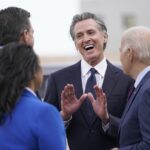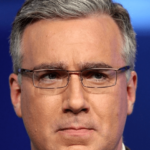Upon securing another six years in power, Vladimir Putin suggested that Russia may seek to extend a buffer zone into Ukrainian territory to prevent drones and other long-range weapons from being able to strike Russian territory.
Potentially signalling his end goal for the war, Putin said that Russia may seek to create a “cordon sanitaire” between Russia and Ukraine, which he said per state media that it would make it “quite difficult for the adversary to overcome with its weapons, primarily of foreign origin.”
While Russia currently controls around 20 per cent of Ukrainian territory, this is concentrated almost entirely in the southeast of the country in the Donbas and Crimea, leaving no so-called buffer zone along around four hundred kilometres of border with Ukraine. Likely buttressing Putin’s rhetoric on this domestically is Ukraine’s recent land attacks against some Russian border areas, amounting to an attempted counter-invasion with paramilitary forces.
Further, Kyiv has taken towards launching drones and artillery strikes at targets, such as oil refineries and other infrastructure in the Russian mainland, as well as using Western-supplied Storm Shadow, ATACMS, GLSDB and Himars missiles to strike targets in Russian-controlled territories.
With the much-heralded counter-offensive from the Ukrainians failing to recapture any meaningful amount of its territory and in light of widespread reports of ammunition shortages, Moscow may use the opportunity this Spring to seize more territory in the northeast of the country in order to seal off access to Russian targets like Belgorod, Kursk, and Bryansk.
Speaking on Monday, Kremlin spokesman Dmitry Peskov said that Moscow “would take measures to safeguard [its] territories” from Ukrainian artillery strikes and drone strikes.
With Ukraine apparently on the back foot, there have growing debates in the West surrounding the on strategy and preferred outcomes. Last week, Rolph Mützenich, the head of the Social Democrats Party (SPD) — the same party as German Chancellor Olaf Scholz — in the Bundestag parliament suggested that the West should seek a “freeze” of the conflict to avoid further bloodshed and more losses to Russia.
During a debate on sending long-range missiles to Ukraine, Rolph Mützenich said: “Isn’t it time that we not only talk about how to fight a war but also think about how we can freeze a war and end it later? Aren’t these questions also politically important?”
Ukraine Launches Series of Drone Strikes on Russia on Final Day of Presidential Electionhttps://t.co/60dWxagBS2
— Breitbart London (@BreitbartLondon) March 17, 2024
Although he won the backing of the likes of former Chancellor Gerhard Schröder — who is considered Putin’s closest ally in Germany and who made significant sums of money from serving on the boards of Russian energy firms — the rest of the Berlin establishment condemned Mützenich for suggesting that it may be better to freeze the lines of conflict now.
German Defence Minister Boris Pistorius said according to NTV that it would “only help Putin in the end, saying that while the West should not grow complacent to the horrors of war, he said, “there can’t be a dictated peace and no peace that leads to that, or a ceasefire or a freeze in which Putin emerges stronger at the end and continues the conflict whenever he pleases.”
It is also unclear if Kyiv — without considerable pressure placed upon it by the West — would be willing to freeze the current lines of the conflict, with President Zelensky’s government very much being of the view that it must have its United Nations-recognised 1991 borders, as established at the collapse of the Soviet Union, respected.
This would not only require Moscow to fall back from its well-defended positions in the Donbas but also from the Crimean Peninsula, which Russia annexed illegally in 2014 following what it believed was a Western-backed coup against the democratically elected government of Viktor Yanukovych in Ukraine.
Foreign supporters of Kyiv may not, privately, believe Ukraine has any meaningful chance of reclaiming Crimea — which Russia now says is Russian territory — French President Emmanuel Macron recently backed Zelensky in this demand, saying that it is necessary for Kyiv to regain control over Crimea for a “lasting peace”. President Macron also caused consternation in both Russia and in the West by suggesting that NATO troops could be deployed into Ukraine and potentially engage directly with Russian forces.
Following his “victory” in the presidential election over the weekend, Putin celebrated the 10-year anniversary of Crimea’s “return to our common family”.
“The people of Sevastopol, the Crimeans – they are our pride. They carried faith in the Fatherland through the decades. They never separated themselves from Russia, and this is what allowed Crimea to return to our common family,” he said, adding that this also applied to the peoples in Novorossia and in the Donbass, suggesting he has no intention of ceding such territories back to Ukraine in any peace deal.
Italy Warns Sending NATO Troops Into Ukraine Could Lead to a ‘Third World War’, Accuses Macron of Exploiting Conflict for Political Purposeshttps://t.co/SBKHewLyy4
— Breitbart London (@BreitbartLondon) March 18, 2024


